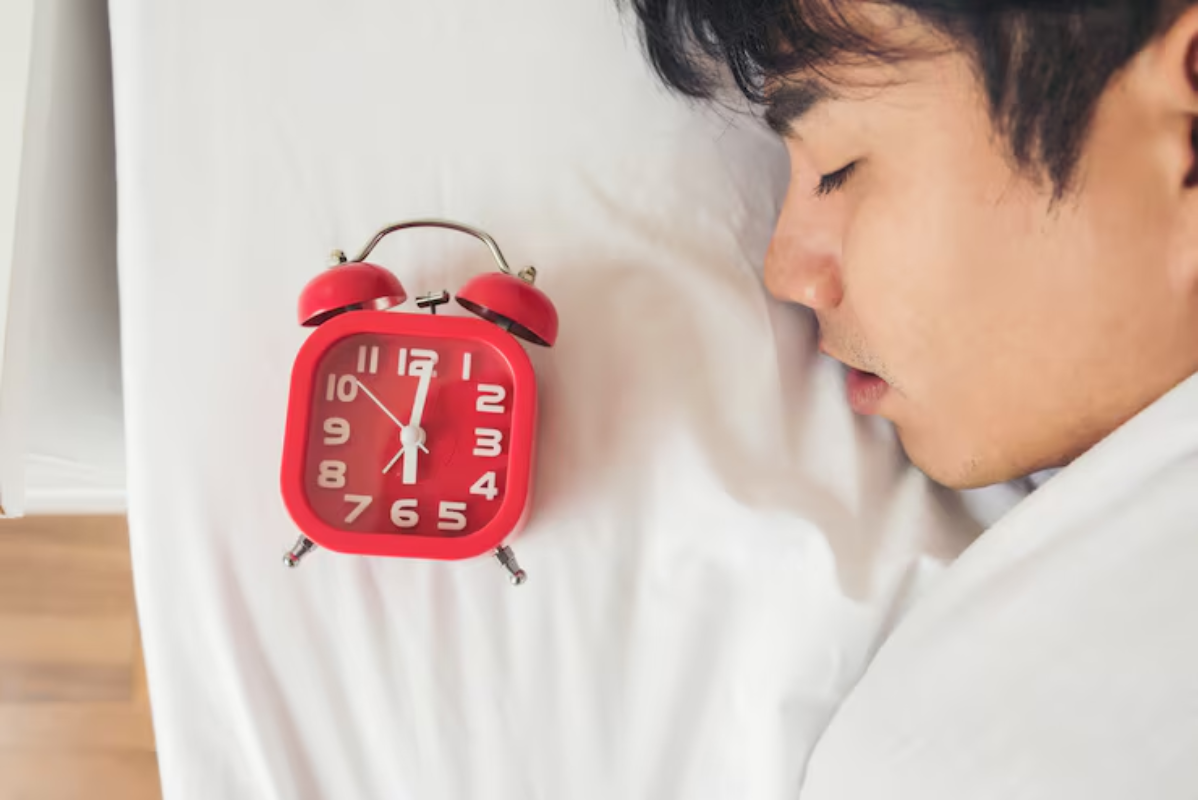Sleep is one of the most important aspects of a healthy lifestyle, yet it’s often the first thing we cut short when life gets busy. Whether it’s late-night work, scrolling on phones, or family responsibilities, millions of people ask the same question every day: Is 6 hours of sleep enough? This simple question doesn’t always have a simple answer. While some individuals may claim they feel fine on limited rest, science shows that sleep is far more than just “shutting off” for the night.
In this article, we’ll explore what really happens during sleep, how 6 hours affects the body and mind, who might be able to function on it, and what the risks are over time. We’ll also discuss how to improve sleep quality when getting more hours isn’t possible and the signs that your body is asking for more rest.
The Science Behind Sleep Needs
How Sleep Cycles Work and Why Duration Matters?
Sleep is not a single uniform state. Instead, it consists of several cycles—each lasting about 90 minutes. These cycles include both non-REM (light and deep sleep stages) and REM (Rapid Eye Movement) sleep. Throughout the night, the body and brain move through multiple cycles, each playing a specific role in physical repair, memory processing, and emotional regulation.
When someone gets only 6 hours of sleep, they often miss out on completing the recommended 4 to 6 full cycles, particularly the later REM cycles that become longer toward the morning hours. Skipping these stages can result in less mental clarity, poor memory retention, and a weakened immune system. So, even if you fall asleep quickly and sleep soundly for six hours, the shortened time disrupts the full restorative process your body needs.
The Role of REM and Deep Sleep in Overall Health
REM sleep is when the brain becomes active and dreams occur. This stage is crucial for learning, problem-solving, and emotional processing. Deep sleep, on the other hand, is when the body does most of its physical healing—muscle repair, tissue growth, and immune system strengthening.
Without sufficient time in both REM and deep sleep, even a seemingly restful night can leave a person feeling foggy and drained the next day. This is why sleep experts emphasize not just how long you sleep but how well you sleep.
How 6 Hours of Sleep Affects the Body?
Physical Performance and Energy Levels
One of the most noticeable effects of limited sleep is reduced physical energy. Whether you’re working out, on your feet all day, or just trying to stay active, 6 hours of sleep can limit your strength, stamina, and coordination. Reaction times may slow, and the risk of injury increases due to impaired motor control.
Over time, chronic sleep restriction—even at 6 hours—can lead to metabolic disruptions. This means your body may become less efficient at regulating blood sugar, storing fat, and managing hunger cues, often leading to weight gain and low energy.
Immune System Function and Long-Term Health
Sleep and the immune system are deeply connected. When you sleep, your body produces cytokines—proteins that help fight inflammation and infection. With only 6 hours of sleep, this protective mechanism weakens, making you more susceptible to illnesses like colds, flu, and even long-term conditions like cardiovascular disease.
Researchers have found links between short sleep duration and increased risks of type 2 diabetes, hypertension, and certain types of cancer. While one or two nights of short sleep won’t cause immediate harm, making 6 hours a habit could slowly chip away at your body’s defenses.
The Mental and Emotional Impact of Limited Sleep
Concentration, Memory, and Decision-Making
Sleep plays a critical role in how the brain processes information. During REM sleep, your brain organizes and stores memories. When that process is cut short, concentration suffers. People who consistently sleep 6 hours or less often experience difficulties with focus, problem-solving, and recalling important details.
Lack of sleep also impairs decision-making skills. Simple tasks take longer, errors become more frequent, and productivity drops—even if you’re physically present at work or school.
Mood Regulation and Emotional Balance
Mood and sleep go hand in hand. Six hours of rest may not be enough to regulate emotional responses. This can lead to increased irritability, anxiety, or even symptoms of depression. Emotional resilience, patience, and empathy tend to decrease when sleep is limited. Over time, this emotional imbalance can strain relationships and reduce overall life satisfaction.
When 6 Hours Might Be Enough for Some People?
Despite the standard recommendation of 7 to 9 hours of sleep for most adults, there are exceptions. Some people claim to function well with just 6 hours of sleep every night. How is that possible?
The answer often lies in genetics and individual differences in sleep efficiency. A small percentage of the population, due to rare genetic variations, naturally require less sleep. These individuals experience highly efficient sleep cycles and reach deep and REM stages more quickly than the average person.
Others might adapt to 6 hours over time, especially if their lifestyle includes consistent sleep patterns, regular physical activity, and low stress. However, this adaptation does not always equate to optimal health—it may simply mask the underlying sleep debt.
Factors That Influence Sleep Requirements
Age and Lifestyle Differences
Age is one of the biggest factors influencing sleep needs. Children and teenagers require significantly more sleep—often 8 to 11 hours—while older adults may need slightly less. However, aging doesn’t eliminate the need for quality rest. Many older adults still require 7 to 8 hours to function at their best.
Lifestyle also plays a role. Athletes, for example, need more sleep to recover from intense training. People who work night shifts, travel often, or manage high-stress environments typically need extra rest to maintain mental and physical performance.
Genetics and Individual Sleep Efficiency
Some individuals are naturally “short sleepers” due to genetic mutations in the DEC2 gene. These people can function well with 5–6 hours of sleep without showing signs of cognitive or physical decline. However, this trait is extremely rare and not something that can be trained or developed over time.
Most people who think they’re doing fine on 6 hours of sleep are simply adapting—but not thriving. Their bodies are compensating with increased cortisol (stress hormone) levels or reduced performance in areas they may not be monitoring closely.
Risks of Getting Only 6 Hours of Sleep Long-Term
Increased Risk of Chronic Conditions
The longer someone sticks to only 6 hours of sleep, the greater the risk for chronic diseases. Studies have linked short sleep duration with heart disease, stroke, and insulin resistance. Inflammation in the body tends to rise with sleep deprivation, which can contribute to autoimmune conditions and long-term metabolic disorders.
Even mental health can suffer. People who sleep less are at a higher risk of anxiety disorders, depression, and mood instability. These issues can compound, creating a cycle that makes getting quality rest even more difficult.
Reduced Life Expectancy Trends
Multiple long-term studies have shown that people who consistently sleep less than 6–7 hours a night have a shorter life expectancy. While other factors like diet, exercise, and genetics play a role, sleep remains a key pillar of overall health and longevity. Simply put, consistently missing out on sleep can gradually reduce your body’s ability to repair itself—leading to premature aging and earlier mortality.
Improving Sleep Quality if You Can’t Sleep Longer
Creating a Sleep-Friendly Environment
If extending your sleep time isn’t an option, improving sleep quality becomes essential. Keep your bedroom cool, dark, and quiet. Use blackout curtains, reduce blue light from screens before bed, and maintain a consistent sleep schedule—even on weekends. A quality mattress and supportive pillow can also improve your comfort and help you fall asleep faster.
Adjusting Daily Habits for Better Rest
Avoid caffeine in the late afternoon, limit alcohol intake, and finish meals at least two hours before bedtime. Gentle exercise during the day can also improve sleep depth—but avoid high-intensity workouts right before bed. Establishing a calming bedtime routine (such as reading, journaling, or light stretching) signals your body to wind down, improving sleep efficiency.
Signs You’re Not Getting Enough Rest
Recognizing Daytime Fatigue and Irritability
Feeling tired in the morning, relying on coffee to stay alert, or experiencing afternoon energy crashes are all signs that 6 hours may not be enough for you. Mood swings, short temper, and emotional instability can also be tied to limited sleep. If these signs are regular, your body is likely signaling sleep deprivation.
Monitoring Health Changes Over Time
Pay attention to weight gain, frequent colds, increased blood pressure, or changes in appetite. These may be slow-developing signs that your body isn’t recovering properly during sleep. Keeping a journal to track energy levels, mental clarity, and overall mood can help identify patterns and guide you toward better sleep practices.
Conclusion
So, is 6 hours of sleep enough? For the vast majority of people, the answer is no. While a few individuals may function well with limited rest due to genetics or efficient sleep cycles, most adults need 7 to 9 hours of quality sleep each night to support their mental, emotional, and physical health. Sleep is not just a luxury—it’s a vital process that affects everything from memory and immunity to heart health and mood.
If you’re consistently sleeping only 6 hours and noticing signs of fatigue, irritability, or poor focus, it may be time to reassess your habits. Improving your sleep environment and daily routines can help enhance sleep quality even when time is limited. In the long run, prioritizing sleep is one of the most powerful steps you can take toward lasting well-being.
FAQs
1. Can adults function well on 6 hours of sleep every night?
Some adults may adapt to 6 hours of sleep, but most will experience reduced focus, energy, and long-term health risks. For peak health, 7–9 hours is typically recommended.
2. Is it better to get 6 hours of deep sleep or 8 hours of light sleep?
Deep sleep is essential, but you need both REM and non-REM stages. It’s not just about one phase; it’s about completing full sleep cycles, which usually take longer than 6 hours.
3. What are the short-term effects of only sleeping 6 hours?
You may feel groggy, have trouble concentrating, experience mood swings, or rely on stimulants like caffeine to stay alert during the day.
4. Can naps make up for missing sleep at night?
Short naps (20–30 minutes) can temporarily boost alertness, but they can’t fully replace the restorative benefits of a full night’s sleep across several cycles.
My name is Mustafa, and I have been blogging for over 5 years. I am passionate about sharing complete, accurate, and helpful information with my readers. Along with managing content on The Matcha Read, I also contribute blog posts to premium websites. My goal is to provide valuable insights in a clear and easy-to-understand way, so every reader walks away with useful knowledge.










